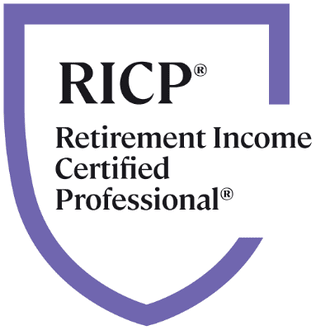
Should You Leave an Old Pension or Roll It into Your 401(k) Plan at Your New Job?
Introduction
You may accumulate retirement benefits from different employers, including government pensions, as you navigate your career. This is common if you work as a teacher or with the state or federal government to get a pension. But you may move from the public sector to the private sector, where you get a 401(k) plan for retirement savings. Now, the investing is left with you. As a result, when you change jobs, you're often faced with a critical decision: Should you leave your old pension where it is, or should you roll it into your new employer's 401(k) plan? This is a significant financial decision, and the pros and cons should be weighed. In this blog post, we'll explore the factors you should consider when making this decision.
Understanding the Options
Before we dive into the pros and cons, let's clarify the two primary options:
-
Leave It Alone (Pension): Typically, you can leave your old pension with your former employer. This means you'll maintain the pension's benefits and payout structure but won't make any further contributions. The pension will typically grow at a more modest rate of return, typically around the inflation rate. However, unlike investing in a 401(k), the investment's value does not drop since you are not dependent on market returns.
-
Roll It Over (401(k)): Alternatively, you can roll over your old pension into your new employer's 401(k) plan or an Individual Retirement Account (IRA). This consolidates your retirement savings and offers potential benefits. The benefit here is the ease of managing your retirement accounts in one spot, but you are losing the guaranteed income for life with a pension. Remember this is not always an option for some pension plans, so check with the plan administrator on refund options.
Factors to Consider
Making the right choice depends on various factors. Here are some key considerations:
1. Pension Terms and Benefits:
- Guaranteed Income: Pensions often provide a guaranteed income stream in retirement, which can offer financial security. With a pension, you get a monthly income for life. Furthermore, you can elect a survivor's benefit if you die before your spouse. This reduces many retirees' fear of running out of money in retirement. This is a common and natural fear for many retirees.
- Vesting Period: Check if you are fully vested in your pension. If not, you might forfeit some or all of the pension's benefits by rolling it over. It might be better to leave the pension where it is if you lose money from the rollover.
2. Investment Control:
- Diversification: 401(k) plans offer a broader range of investment options, allowing you to diversify your portfolio according to your risk tolerance and goals. This can be good for those who want to choose investments. However, it involves understanding the basics of investment, which does not have to be done with a pension since professionals manage the investments.
- Active vs. Passive: Consider whether you prefer actively managing your investments in a 401(k) or having a hands-off approach with a pension. Are you willing to learn about investing? Does your current 401(k) plan have low-cost target date funds that make investing easier since you invest in only one fund?
3. Portability:
- Career Flexibility: If you anticipate changing jobs frequently, consolidating your retirement accounts in a 401(k) or an IRA can make it easier to manage your savings. This is an essential consideration since old plans tend not to get as much tender loving care after you leave a former employer.
4. Fees and Expenses:
- Costs: Compare the fees associated with your pension and 401(k) plan. High fees can erode your returns over time. If your 401(k) plan at your new job has a lot of fees, maybe this is not a good option for a rollover. Carefully look at the expense ratios found in the investment prospectus. Do you have access to low-cost index funds in your 401(k) plan?
5. Employer Contributions:
- Matching: If your new employer offers a 401(k) match, rolling over your pension could allow you to take advantage of additional contributions, effectively increasing your retirement savings. Make sure you fully take advantage of the match, as this is free money if you contribute to your 401(k) plan.
6. Risk Tolerance:
- Market Exposure: Pensions typically have lower investment risk since they provide a guaranteed payout. If you're risk-averse, you might lean towards keeping your pension. At least having some of your investments in the pension is a good option, and perhaps having your other investment with more exposure to stocks, which have greater risk but potentially more significant return.
7. Long-Term Goals:
- Retirement Objectives: Consider your long-term retirement goals. Which option aligns better with your financial aspirations and plans for retirement? If you have only contributed a few years to the pension, it might make sense to roll it into your new 401(k) since the monthly annuity amount would be minimal. But if you have a long 20-year career in government and have a pension, it might make more sense to keep the pension and get a monthly income in retirement.
Conclusion
Deciding to leave or roll an old pension into your new 401(k) plan isn't one-size-fits-all. It depends on your unique financial situation, career goals, and risk tolerance. This is a decision mainly found with teachers and other former public servants. This is a critical decision and should be carefully made, perhaps with the help of a financial advisor. Leaving it untouched might be wise if your old pension offers a valuable guaranteed income stream and you're risk-averse. However, if you value investment control, prefer flexibility, and have confidence in managing your investments, rolling it over into a 401(k) or an IRA can provide benefits.
Before deciding, consult with a financial advisor who can provide personalized guidance. They can help you evaluate your options in the context of your overall financial plan, ensuring you make a choice that aligns with your retirement objectives and secures your financial future. Remember, it's a pivotal decision; careful consideration is crucial in ensuring a comfortable retirement. Contact me on the contact page below if I can help you evaluate whether you should roll your pension into your 401(k) plan.
*This content is developed from sources believed to be providing accurate information. The information provided is not written or intended as tax or legal advice and may not be relied on to avoid Federal Government tax penalties. Individuals are encouraged to seek advice from their own tax or legal counsel. Individuals involved in estate planning should work with an estate planning team, including their legal or tax counsel. Neither the information presented nor any opinion expressed constitutes a representation of a specific investment or the purchase or sale of any securities. Asset allocation and diversification do not ensure a profit or protect against loss in declining markets.





